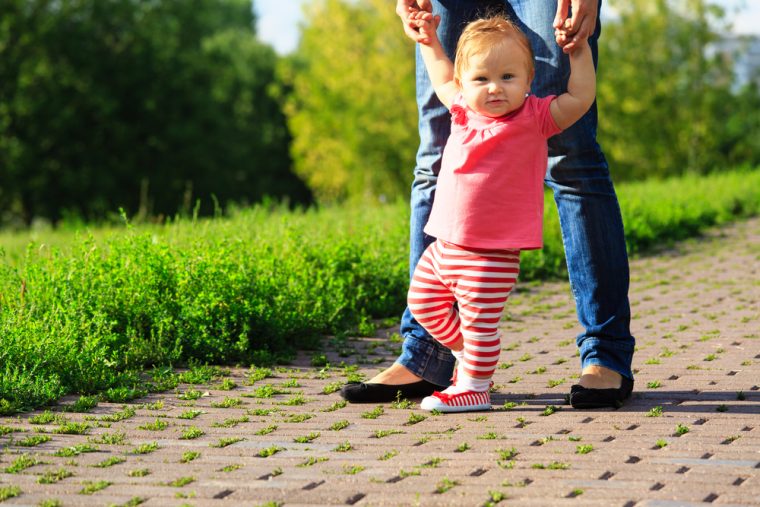Key Points:
- Learning to walk is a major physical milestone for babies and typically occurs between nine and 15 months of age.
- Babies are born with an innate knowledge of the movements needed for walking, but they lack the leg strength to do so at first.
- Before learning to walk, babies typically reach milestones such as crawling and standing with support, and baby-proofing the home is necessary to prevent injury.
- Encouraging and praising babies as they take their first steps is important, and continued practice will help them gain confidence and improve their balance. Consulting with a pediatrician is recommended if there are concerns about a child’s walking development.
Your baby will achieve tons of milestones, but their first steps will be one you won’t forget! Walking is a major achievement in your baby’s physical development and, if you are like most parents, you may have questions about how a baby starts learning to walk and how you can encourage this milestone.
When will my baby start walking?
Generally, babies take their first steps between 9 and 15 months but remember that children develop at their own pace. So be patient if your little one is taking their time; some babies start walking later on, at around 18 months, and it’s fine!
Did you know that babies are born with an innate knowledge of the movements needed to walk? They just lack the strength in their legs to do it. If you hold your baby in an upright position you will notice they instinctually move one foot in front of the other in a walking-like motion. This is called the stepping reflex, which disappears when babies are 4 months old.
How can I know if my baby is ready to walk?
There is not one universal sign that indicates that your child is ready to take their first steps. But before walking most babies accomplish these physical milestones:
- By 7 and 10 months, most babies learn to crawl (although some babies never crawl before walking).
- By 9 and 12 months, babies learn to stand up by themselves. Just remember, your child may be using some furniture as support, so make sure to baby-proof your home!
- Once your baby masters how to cruise between furniture they will venture to practice their first steps by themselves.
So, when your baby is pulling themselves up to stand, stand while playing, or stand without support, that may be a sign that your little one will start learning to walk soon!
What about baby proofing?
As your baby starts to take their first steps, you will feel tons of joy seeing your little one starting to gain more independence, but you’ll probably feel anxious too as you see how every object can become a hazard! You probably baby-proofed your home when your little one was learning to crawl. Now you need to keep in mind that your baby will be able to reach higher objects, so just make sure to check again.
The most effective way to ensure your child’s safety is to take a baby’s-eye view of your home. Get down on your knees and see how things look from down there. This will help you figure out which cupboards, drawers, and other spaces your little one might try to reach.
How can I help my baby start learning to walk?
Walking is all about confidence and balance. The best way to help your little one is by praising and encouraging them every time they try to walk. Their first steps will mean a lot to them, so when they reach this monumental milestone, make sure to make a big deal about it and celebrate it with your toddler.
You can find tons of activities in Kinedu to encourage and practice this skill! Remember, practice makes perfect; the more your little one practices, the better they will become. Before you know it, they will almost be running around!
Should I worry if my baby doesn’t walk?
Similar to crawling, not all babies start learning to walk at the same time, and if your little one is premature it will take them longer to walk compared to their peers. Remember that you can always consult your pediatrician if you are worried about the milestones or if your child can’t walk after turning 18 months, or can’t walk steadily at 2 years.








